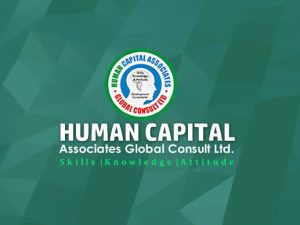Workshop on Reliability Centered Maintenance: Principles, Planning & Applications
Jan. 29 – Feb. 2, 2024, 1st Run: Lagos & Port Harcourt
July 29 – Aug. 2, 2024, 2nd Run: Lagos & Abuja
For Tutor -Led Class: 9am – 4:30pm
Workshop fee: N300, 000 per Participant
For online: Delivery via Zoom
Online course fee: N250, 000 per Participant
Available for In-plant Training
Program Overview:
Reliability is a cornerstone of any maintenance process. Get it right and you can enjoy good safety performance, low running costs and a sustainably high production level at the right quality. Reliable plants are usually safer and cite a higher level of morale. Lose control of reliability and operations become less predictable, more chaotic and much more difficult to control.
This is a highly practical course that includes the latest thinking in reliability improvement, how to gain maximum benefit for minimum effort and how to develop bespoke reliability strategies that will integrate effectively with other campaigns. This will include methods and tools as well as the Carcharodon Model of Excellence to add structure and enable participants to break this complex subject into smaller, more understandable parts.
Reliability is not the responsibility of maintenance alone and outstanding performance can only be achieved with a strategy that includes operations, design, materials and contractors. This course is based upon our Model of Excellence for bringing all these considerations together as one to achieve pace-setter standards.
For Whom:
This course is suitable for reliability engineers, maintenance managers, maintenance supervisors, planners, project managers, project engineers, operations managers, shift managers, operations supervisors and people who are in training for these positions. This course is also designed for contractors who want to contribute to the reliability performance of client assets.
Learning Objectives:
At the end of the program, participants will be able to:
- explain how pace-setters achieve outstanding reliability performance and how to use the Carcharodon Model of Excellence;
- develop reliability programs that align with the unique needs of their business, asset and maintenance strategies;
- analyze their current performance against best-in-class benchmarks;
- calculate potential fixed and variable cost reductions along with productivity, output, and product quality improvements, that can be delivered through reliability improvement;
- apply key reliability improvement methodologies and tools to improve reliability performance; and
- engage colleagues and consider the human factors required to support a high reliability culture.
Course Outline:
Day 1: Reliability and its role in the wider business context
- An introduction to reliability
- Calculating the value of cost reduction and increased production
- The impact of reliability on safety, quality and team morale
- Overall Equipment Effectiveness (OEE), an international model for measuring asset performance
- A definition of maintenance
- The move to asset management and the modern maintenance strategy
- Sources of reliability losses and the role of operations, design and procurement
- Contractors, materials and equipment
- The reliability pyramid
Day 2: Sources of best practice and models of excellence
- Reliability benchmarks
- The link between performance and reliability practices
- Where to look for best practice
- Case studies of pace setter methodologies
- A Model of Excellence for reliability
- Building a reliability focused supply chain
- Customer focused reliability
Day 3: Building a unique reliability strategy for your plant
- Base lining plant performance
- How to project the potential level of improvement?
- Calculating the benefits case
- How to focus on the most valuable priorities for any business
- Using the Define, Measure, Analyze, Improve and Control (DMAIC) methodology for structured performance improvement
- An end-to-end process for reliability improvement and asset life extension
Day 4: Reliability improvement tools
- Key principles of reliability centered maintenance,
Total Productive Maintenance (TPM) and Six Sigma
- Using Root Cause Analysis to address historic failures
- Criticality analysis to prioritize reliability efforts
- Proactively avoiding future failures using
Failure Mode Effect Analysis
- Reliability by design
- The 5S process for improving ergonomics and identifying issues
- An introduction to the Single-Minute Exchange of Die
(SMED) process for reducing downtime to repair
- When to consider advanced software models
- Reliability focused shutdowns and turnarounds
Day 5: Sustaining improvements and tracking performance
- The impact of human factors on reliability performance
- Gaining buy in beyond just the maintenance team
- How to get people to own reliability?
- Developing a reliability culture
- The importance of data in performance improvement
- Reliability metrics
- Use of Pareto analysis
- Loss accounting and failure reporting
- Reliability roles and organizing for success
Training Methodology
Lectures, discussions, exercises, and case studies will be used to reinforce these teaching/learning methods.
Related Courses






